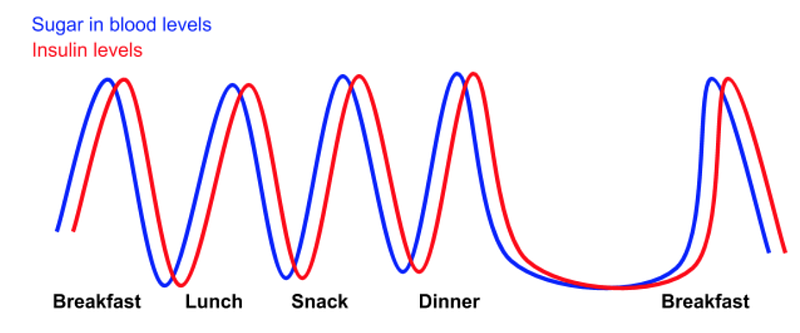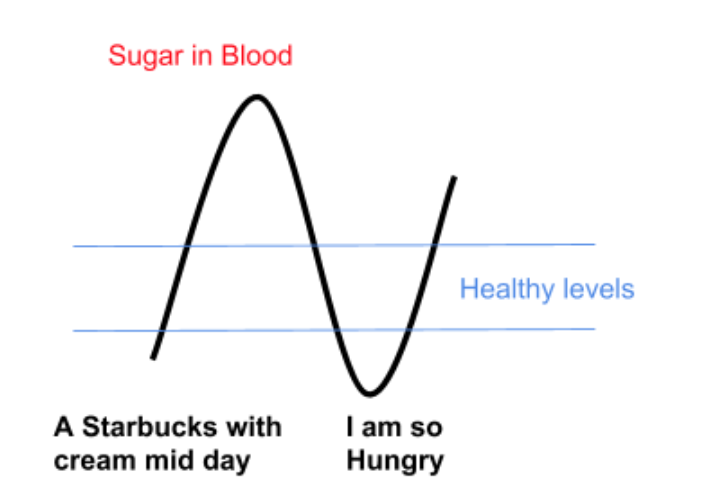Part 1: Loosing Weight with a 4 month Keto diet with Intermittent Fasting (OMAD)
About me:
I am 36, an entrepreneur in tech. I used to do a lot of sports, but after I broke my knee I did less and less exercise. As an entrepreneur, I dedicated more and more time to the computer, conferences, dinners, airport snacks, and I gained 14kg, to a point where I felt embarrassed to give public talks. Last year I got married and this year we decided we wanted to have children. I learnt that your spermatozoids do not only pass genetic material but also epigenetic. This meant that if I was fat I was more likely to have children who would also be more prone to gain weight. Also, being fat is bad for testosterone and fertility. I felt this was the right wakeup call to not fail at my next diet.
Past diets:
I have tried other diets in the past. The first "diet", several years ago, was to move from Coke to Coke Zero. This easily reduced my caloric intake by about 1500 calories per week, but that's hardly a lifestyle change. Other diets I tried included not eating chocolates or snacks, and try to "eat healthy", and maybe have cheat meals on weekends. I might lose 2–3kg, then relax, then regain them.
My main problem with diets was the protocol. It's too difficult to follow most protocols. When I read about eating 5 small meals, I would end up eating 5 average meals, and still feel hungry after each of them. I never felt satisfied and eventually gave up. Other protocols are just impossible to follow for people who travel, where they assume you can always measure all ingredients and cook your own meals.
Learning about insulin first:
Before we can speak about diets, let's learn something about our bodies first. For my dietary plan, I think I spent more time learning about mitochondria than food. Let's begin:
Your cells use energy to sustain themselves and for all your activities. They do this by burning food (glucose (sugars, starches), aminoacids (protein) or fatty acids (fats)) inside your mitochondria. Your mitochondria are energy plants inside your cells. You can have more than 1 mitochondria per cell. Some energy plants are bigger than others. Some are more efficient than others. You want to have many large well-functioning mitochondria to give energy to your body efficiently when it needs it (We'll get there).
Your body usually prefers to break down glucose. It is easier. It will only break down fatty acids in the absence of glucose. Glucose gives you 4 calories per gram. Fats give you 9 calories per gram. If you have 11 kilograms of body fat, it basically means that you have 100,000 calories stored in your body, available to be burned. You probably burn between 1800 and 2500 calories per day. So basically you have energy for 50 days without eating anything. So why are we hungry?
Hormones. Amongst them, insulin. Insulin is released by the pancreas when we eat carbs to reduce the amount of sugar in blood. Insulin opens cells membranes to accept sugars that will either be burned for energy in mitochondria or converted into fat and stored in fat cells. While there is insulin in our bodies, our bodies simply won't burn fats. Insulin levels takes about 2–4 hours to go down after eating carbs. So basically, if we eat every few hours, our insulin levels are always high. And we simply cannot lose any fat. No gram of fat. Nothing. So those diets of eat 5–6 times a day, small meals, are the worst. Those "detox juices" mid-day made of fruits (fructose) are just skyrocketing your insulin. If you are eating at just any time of the day, you only have low levels of insulin at night while you sleep.
Ready to take the next step in mastering your arousal and Cure your Premature Ejaculation? 👇
Get Your Copy of Mastering Your ArousalUnlock lasting control and confidence in your intimate life.
Related Posts
Trending Articles
Search Now
Recent Posts
- Understanding and Controlling Involuntary Kegels (Contractions) During Sex
- Why the Transition to Sex Can Be So Challenging After Premature Ejaculation Training?
- Why Setbacks Happen: The Truth About Orgasm During Your PE Recovery Journey
- I Prematurely Ejaculated in my Girlfriend while Trying to cure my premature ejaculation using the Guide
- Have you tried this technique once you get too close to PONR
Categories
- Premature Ejaculation
- Question & Answer
- Diseases
- Drugs
- Loans
- Insurance
- Health
- Hospital
- Lifestyle
- News
- Know How
- Education
- Travel


Comments (0)
Leave a Comment